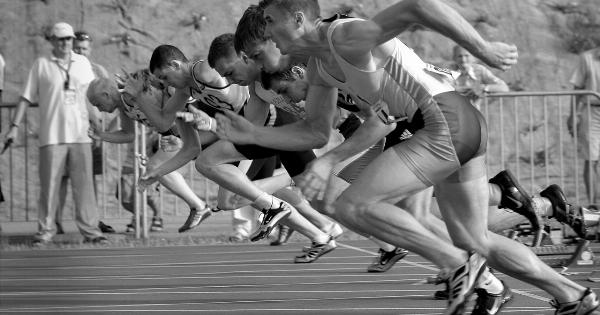Running is a popular form of exercise that requires endurance, speed, and strength. To improve running performance, athletes often focus on training, nutrition, and recovery.
However, one crucial factor that is often overlooked is the role of magnesium in optimizing running performance. Magnesium plays a vital role in various physiological processes that are essential for optimal running performance.
1. Magnesium and Energy Metabolism
Magnesium is involved in the energy metabolism of the body, particularly in the production and transport of ATP (adenosine triphosphate), the primary source of energy for muscular contractions during exercise.
ATP is needed for muscle contraction, and magnesium is essential for the enzymatic reactions that convert ATP into usable energy.
2. Magnesium and Oxygen Delivery
Oxygen delivery is critical for optimal running performance as it enables muscles to continue contracting efficiently. Magnesium helps to regulate the function of red blood cells and blood vessels, optimizing oxygen delivery throughout the body.
This ensures that muscles receive enough oxygen for optimal performance and delays the onset of fatigue.
3. Magnesium and Muscle Contraction
Muscle contractions are a fundamental aspect of running. Magnesium plays a crucial role in regulating muscle contractions by controlling the movement of calcium ions across cell membranes.
Proper levels of magnesium ensure that muscles contract and relax efficiently, enhancing running performance and reducing the risk of cramps or muscle injuries.
4. Magnesium and Electrolyte Balance
Magnesium works closely with other electrolytes, such as potassium and sodium, to maintain proper fluid balance in the body. Electrolyte imbalances can lead to muscle cramps, dehydration, and diminished running performance.
Magnesium helps to ensure the proper balance of electrolytes, contributing to optimal muscle function and hydration during exercise.
5. Magnesium and Recovery
Recovery is a critical component of improving running performance. Magnesium aids in muscle recovery and reduces post-exercise muscle soreness.
It helps to counteract the damaging effects of oxidative stress and assists in repairing damaged muscle tissues. Adequate magnesium levels promote faster recovery, allowing runners to train harder and more frequently.
6. Magnesium and Immune Function
Magnesium also plays a role in supporting the immune system, which is essential for preventing illness and maintaining overall health.
Regular exercise, particularly intense training, can temporarily suppress the immune system, making athletes more susceptible to infections and illnesses. Adequate magnesium levels help to support immune function, minimizing the risk of illness and enhancing running performance.
7. Magnesium and Nervous System Function
The nervous system plays a crucial role in coordination, balance, and overall performance during running. Magnesium supports proper nervous system function by regulating neurotransmitter release and transmission.
It helps to maintain optimal brain function and neuromuscular coordination, improving running performance and reducing the risk of injuries.
8. Magnesium and Bone Health
Strong and healthy bones are essential for runners to minimize the risk of stress fractures and other bone-related injuries. Magnesium is necessary for the absorption and metabolism of calcium, a vital mineral for bone health.
Maintaining adequate magnesium levels contributes to the strength and density of bones, reducing the risk of running-related injuries.
9. Magnesium and Endurance
Endurance is a key factor in running performance, especially for long-distance runners. Magnesium helps to optimize endurance by supporting the efficient breakdown of carbohydrates and fats for energy production.
This ensures a steady and sustained supply of energy during prolonged running sessions, delaying fatigue and enhancing endurance capacity.
10. Magnesium and Sleep Quality
Quality sleep is crucial for overall health and athletic performance. Magnesium plays a role in promoting deep and restful sleep by regulating neurotransmitters and promoting relaxation.
Better sleep leads to improved recovery, enhanced running performance, and decreased risk of injuries.































